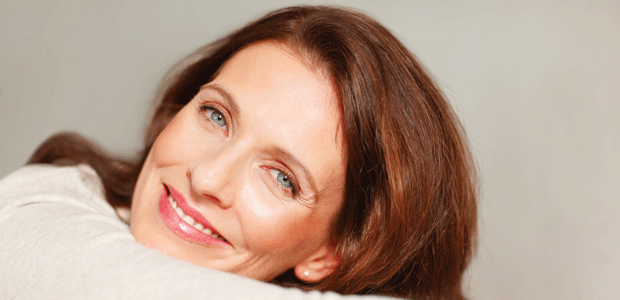Advertisement
Hold Onto Your Locks!
Avoid losing your hair

While hair loss isn’t life threatening, for many women it can be mortifying. And while our grooming choices sometimes impact our crowning glory, often the cause of thinning hair involves looking past the mirror—into the health of some important body systems.
The hormone effect
Whether we’re talking about insulin, thyroid, estrogen, or testosterone, hormones play a significant role in your health and the health of your hair. In fact, one of the major causes of hair loss in women is testosterone.
You know of it as a male hormone, but women have a little bit of it too. Problems arise when testosterone becomes excessive in relation to other sex hormones such as estrogen, leading to conditions such as polycystic ovary syndrome and acne.
When it comes to your hair, testosterone combines with an enzyme in the hair follicle, creating another hormone called dihydrotestosterone (DHT). DHT suppresses the hair follicles, causing fewer and thinner hairs to be created. Eventually the follicle ceases to function and hair is permanently lost.
|
Thyroid thinning Thyroid function is a factor in hair loss in everyone: men, women, and children. Have your health practitioner check your thyroid health if you are losing your hair. If tests come back normal, consider consulting an alternative care practitioner about functional thyroid imbalances—while you might not register, medically, as having a thyroid imbalance, you could be on your way. Fortunately, acting early can prevent more serious conditions later on. |
This is the same process that occurs in male pattern baldness and is known as androgenic alopecia, but women don’t lose hair the same way men do. Rather than developing a receding hairline, women typically experience gradual thinning all over the head. They may also notice loss of body hair. While this might not be such a bad thing, facial hair may become coarser.
Many women notice thinning hair as they approach menopause and afterward as estrogen levels decline. This is because estrogen is essential for a helping hair grow and remain on the head. If you enjoyed luscious locks during pregnancy only to return to your regular head of hair after the baby was born, you’ve experienced the effect of estrogen first hand.
If you are experiencing hair loss, work with a qualified health care practitioner to evaluate your hormone levels and make adjustments where necessary. Avoid exposure to hormones that can further tip the balance in the shedding direction. For example, testosterone is often used in products to restore sex drive. The supplement DHEA converts to testosterone in the body, so it should also be avoided if you are experiencing androgenic alopecia.
More hair reflections
|
Hot stuff Avoid extreme heat when using appliances to style your hair as it can cause hair to dry out and break. Set your blow dryer on cool to minimize hair damage; limit straightener or curling iron use to once or twice weekly, and apply a rich conditioner. Treat yourself to a homemade conditioning treatment using coconut oil or olive oil: slather oil onto hair, apply shower cap, and wrap head in a towel. After 20 minutes, shampoo as usual. Your hair will be nourished and incredibly silky. |
Research indicates that women with androgenic alopecia tend to have low levels of iron in their blood. If your hair is thinning, have your iron checked to rule out anemia.
Other factors that can cause hair loss include stress or trauma, cigarette smoking, rapid weight loss, parasites, and some medications. Metal poisoning may be a factor, along with chronic disorders including insulin resistance, autoimmune disease, and abnormal liver or kidney function.
While fretting over lost hair might seem trivial, hair loss can suggest a potentially serious underlying health condition that should be addressed. If you don’t get satisfaction from your current health practitioner, find another who will take your concerns seriously.
Alopecia is not an issue of simple vanity. The sooner you address the problem, the sooner you can resolve it.
|
Beauty prescription for reducing hair loss
Editor’s note: Our experts’ recommendations may differ from those of Health Canada. Consult with your health practitioner when considering a new supplement. From Living Beauty: Feel Great, Look Fabulous and Live Well (Fitzhenry & Whiteside, 2006) |





